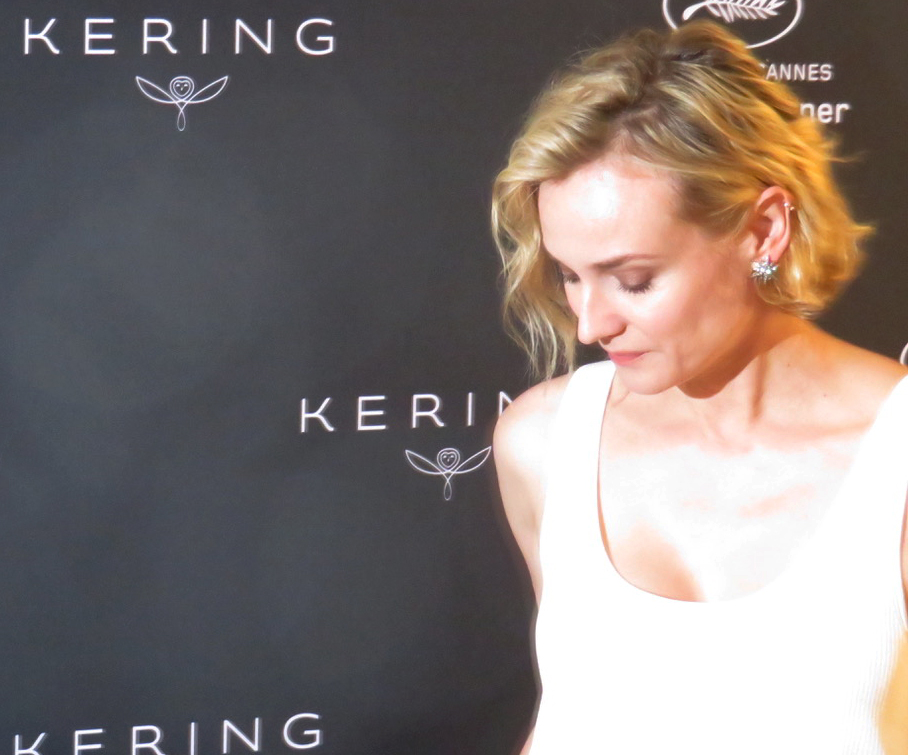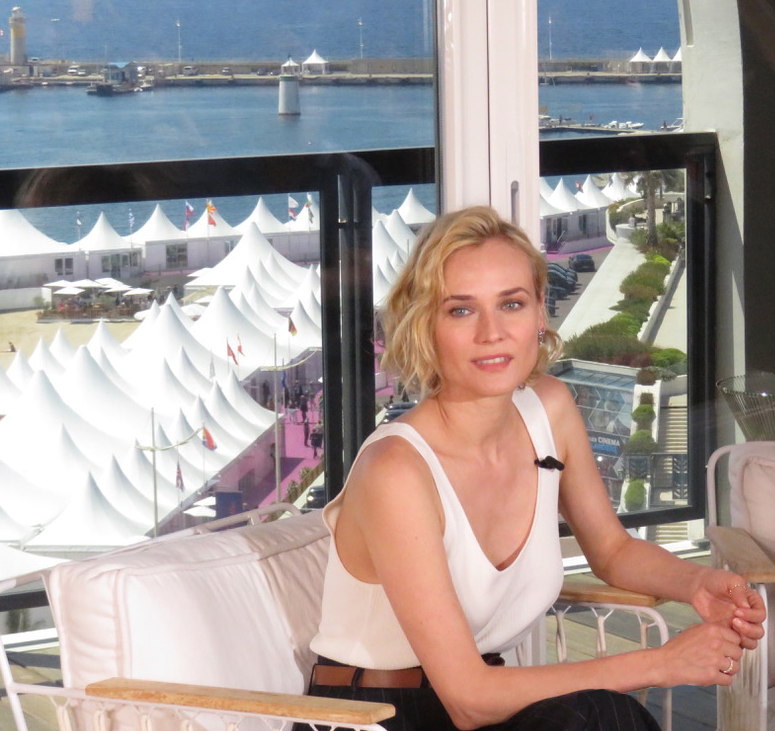
- Industry
Diane Kruger – Refusing to be ‘In the Fade’ When It Comes to Gender Equity
“I certainly have not been paid the same as a male star. Sometimes I’ve had to accept (the pay disparity) for financial reasons, or because I really wanted to play that role. It is tough, but I have walked away from movies that I didn’t think were that important in my career. Movies that I wasn’t that passionate about, that I’ve started negotiations on, and they weren’t going to meet my price.” Diane Kruger was speaking at the Kering: Women in Motion talk in Cannes. Against a slick Mediterranean Sea and endless blue sky, the star of the upcoming In The Fade discussed the solutions to the lack of access to power for women in film behind and in front of the camera. She believes there has to be a willingness to forgo a project when failing to receive equal pay based on gender alone. “I have thought it’s not worth it. I know how much time and effort and how much work I put into this and if they do not want to recognize that they are being disrespectful, I’d rather walk away.” Although she acknowledges the difference of a passion project, or an independent film that has limited funds. “It’s different when you really want a part.” She tips her hat to women like Jessica Chastain and Jennifer Lawrence, the voices of the next generation who say, “No, I am not going to make this movie, it is not the end of my career.”
Although the generalized theory for women being less represented in positions of power is that women don’t ask. Like many of her male counterparts, Ms. Kruger is willing to pursue a part she believes is right for her. Case in point, Inglorious Bastards. “Quentin Tarantino didn’t want me for the part,” she explains. “He didn’t believe I was German, just of German descent,” due to her flawless American accent in films like the National Treasure franchise. “I had to fly myself on my own dime to Germany to read toward the end of the casting process. He saw everybody else before he saw me. I had to learn 30 pages of dialogue in German and in English. It was nerve racking to say the least. When he was reading with me, he said, ‘Do you want to get your script?’ and I said, ‘I don’t need it. I have learned it.’ Because I had heard he was very particular about that. I know he was kind of impressed that I had learned 30 pages in 48 hours. We just did it and I had fun and I knew my lines and I could just see that little smile on his face.” She obviously got the part, and is proud of creating her own opportunities.
For Diane it comes down to how you want to be treated. “It has been my experience that if I speak up and do not sugarcoat things, the comment will be, ‘Oh you are harsh, or a bitch.’
Whereas for the men it will be, ‘He is a great artist and passionate about the work.’ She smiles. “It is our responsibility to ourselves to create a space and say, ‘No, this is where I draw the line.’ I know that sometimes that is difficult.”

Diane Kruger at 70th Cannes International Film Festival
Margaret Gardiner/HFPA
What’s also difficult to come to terms with is the preponderance of movies where women are adjuncts to the male centric story. For the German native, one of the benefits of having a woman helm a movie is that ‘the women characters tend to be ‘more profound and less one note. The films I have made with women, the woman have had very central female figures.” Though she points out that In The Fade is directed by a man and focuses on a woman coming to terms with the loss of her husband and child due to a bomb attack. “Fatih Akin elicited a raw, real performance from me,” she acknowledges, yet she feels, “there is a directness with another female that is straight to the point and less of the seduction. I’m not talking about the physical seduction – obviously men and women talk differently to each other.”
The search for substantial female roles has led her to work more in Europe where tentpole movies and superhero films aren’t as dominant. It’s also the reason she worked on FX’s The Bridge. “Television has always been a better opportunity for women compared to a lot of the movies that are out there. “It’s one of the reasons I make a lot of French movies because generally, I have had more complete characters in Europe than in the United States – although I think things are changing slowly.”
The former dancing student suggests that one of the ways to bring about change is for women to get involved behind the camera as producers, as directors. “I’ve been invited to direct a short to get girls more interested in science.” She’s leaning in, taking on the challenge while also developing strong women characters as a producer. “I’m always fascinated when people think outside of the box. Girls have the ability to do anything they want, even if they are not traditionally encouraged to go to school and learn to be scientists. It is the mind that counts.” “It’s important to have representations for girls to see themselves doing those jobs they don’t imagine themselves doing.”
This quest to be seen as more than the box into which you are placed is an ongoing challenge for women. “When you want something on set, or you are asking for something, as a woman you go, ‘How do I get around to getting what I want? Sweet talking someone?’ You do not want to be seen as a bitch.” She gives a little shrug, “It is only recently, with age, the realization comes – I don’t care if you think I’m a bitch. I am just going to ask for it. I try not to be harsh. I try to be polite, and respectful, but at the same time, you have to create that space, and that perspective, that respect is deserved. “I work hard. I am on time. I know my lines. I am 100% invested in everything I do, so please treat me the same as you would my male co-star.”